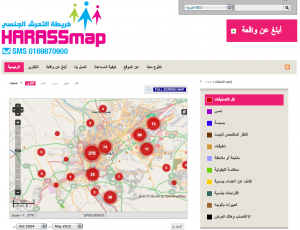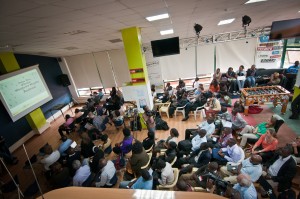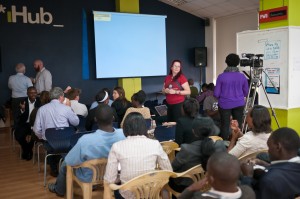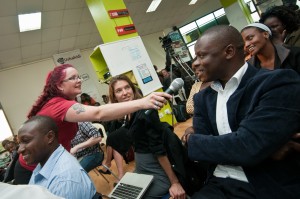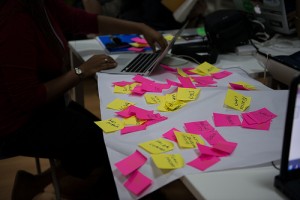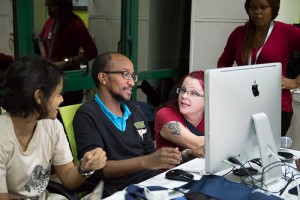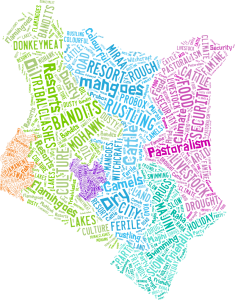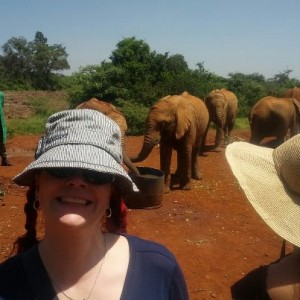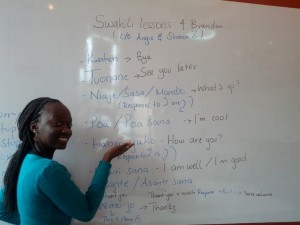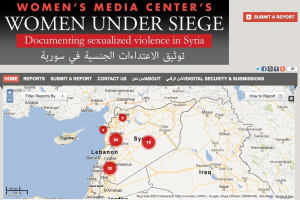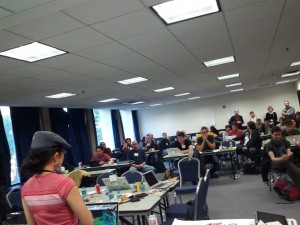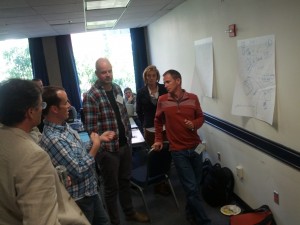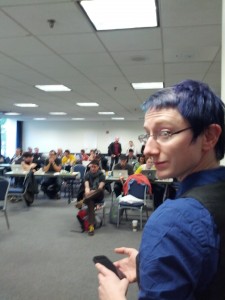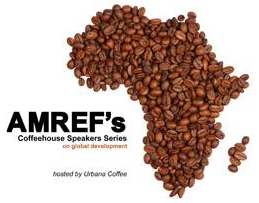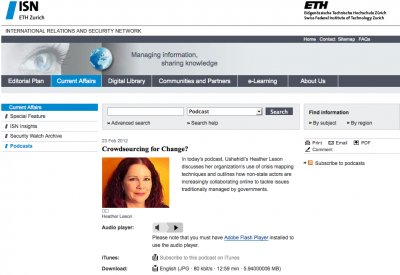How often can you say that you are proud and excited that your government funds something? The International Development Research Corporation (IDRC) funds many important technical, research and social entrepreneur groups that I respect and admire. This includes Citizen Lab based at University of Toronto and Harassmap, a social entrepreneur and civil society group based in Egypt.
Today I had the great opportunity to meet the visionary Rebecca Chiao of the Harassmap Team. After two years of admiration and professional correspondence, it was an exciting exchange about program management and mapping strategy for online and offline campaigns. The Harassmap Team are leaders mentoring others in over 19 countries including Bosnia, India, Syria and more. Their Ushahidi deployment is one of the most successful deployments of the software. As such, I frequently recommend that new mappers review blog posts, videos and annual reports from the Harassmap team.
Rebecca is touring Canada to share the Harassmap story.
You can hear her stories in person:
Toronto: February 5, 2013
The Vivian and David Campbell Conference Facility, Munk Centre for International Studies
1 Devonshire Place, University of Toronto.
Register at http://munkschool.utoronto.ca/events or watch the live webcast .
Ottawa: February 6, 2013: 10:00 a.m. to noon
Lecture: “HarassMap: Social Mapping Sexual Harassment and Violence in Egypt”
When: Wednesday, February 6, 2013, from 10:00 a.m. to noon
Where: IDRC, W. David Hopper Room, 150 Kent Street, 8th floor, Ottawa, ON
Montreal: February 8, 2013: 12:30 – 14:00
McGill University, NCDH 202, 3644 Peel Street, Montreal
“Women’s Rights – Egypt Combating Sexual Harassment”
She has been featured on CBC The Current and CBCSpark. On Wednesday, she will be on CBC Power and Politics.
I’m looking forward to attending tomorrow’s talk at UofT. Hope you can join some of the events.
